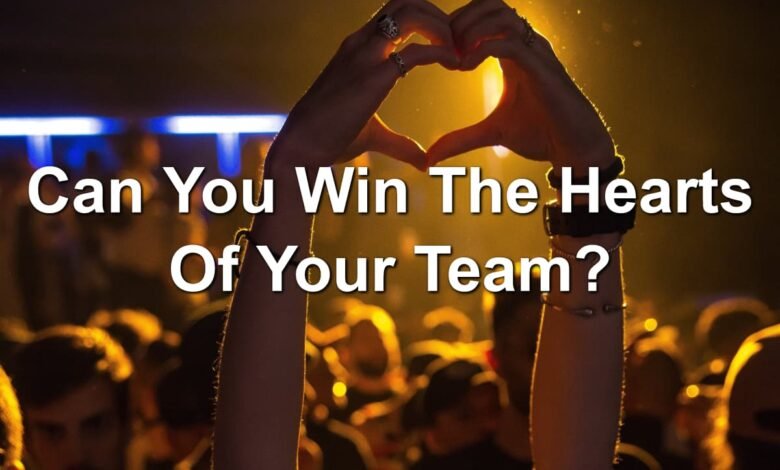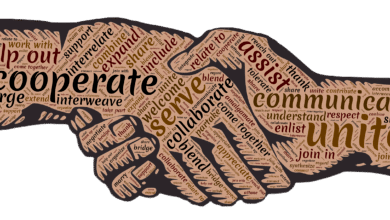When Love Keeps Returning: How Many Times Will You Win My Heart?

Introduction
Love isn’t a single, tidy event it’s a pattern, a series of moments that rearrange how you see another person and yourself. The question “How many times will you win my heart?” isn’t purely romantic rhetoric; it’s an invitation to examine how attraction, trust and emotional safety are built, broken and rebuilt over time. In this article I’ll walk you through the common ways hearts are won again and again, what that cycle reveals about attachment and boundaries, and practical steps to protect your wellbeing while staying open to intimacy. The perspective here aims to blend emotional experience with reasoned guidance so you can make choices that feel both true and healthy. Whether you’re in a committed long-term relationship, navigating repeated reconciliations, or learning how to let someone in for the first time after being hurt, this piece will give you language and tools to decide when to open your heart and when to guard it.
What “Winning Your Heart” Really Means
When someone “wins” your heart the first time, it’s rarely about a single grand gesture. More often it’s the accumulation of consistent attention, emotional attunement and small acts that show care. Psychologically, the first win ties to novelty and reward: dopamine spikes when you feel seen and validated, and oxytocin bonds form with moments of trust. But there’s also a narrative you tell yourself why this person matters, how they match your ideal, and how safe you feel showing vulnerability. This paragraph unpacks those layers: what they did, how you interpreted it, and why your internal story matters as much as their actions. Understanding the mechanics of that first win helps you notice patterns later whether that person consistently deserves to be rewarded by your openness or whether you’ve mistaken charm for dependability. Knowing this difference protects your heart from being won by surface-level behaviors and helps you prioritize warmth, reliability and emotional respect as the true markers of someone worth letting in.
Why Hearts Reopen After Hurt
People return to relationships for many reasons: love persists, familiarity comforts, or unresolved needs call louder than caution. When a heart reopens after hurt, it often signals that the emotional bank account still has balance fondness, shared history, and mutual investment can outweigh pain. But reopening also requires reassessment: is the change genuine or temporary? Real repair involves sustained behavior change, accountability and newly established boundaries. If apologies are frequent but behaviors don’t follow, the pattern risks becoming cyclical and damaging. This paragraph explores the psychology and practical signs of a healthy comeback: consistent reparative actions, third-party support (therapy or mediation), and clear, negotiated expectations. It also warns about “illusion repairs,” where words soothe but habits don’t shift. Recognizing the difference helps you avoid repeatedly handing your heart back to someone who hasn’t done the hard internal work to keep it safely.
When Patterns Become Habits
Sometimes a person can win your heart multiple times because the relationship is genuinely evolving; other times, repetition indicates an unhelpful pattern. Repeated wins without lasting change point to underlying issues codependency, unclear boundaries, or unmet personal needs. Breaking the loop requires both introspection and strategy: map your triggers, identify the moments you give in, and decide which behaviors are non-negotiable. Changing a pattern often means creating friction where there was comfort: postponing reconciliation until you see evidence of change, insisting on couples therapy, or establishing time-limited trials of renewed trust. This paragraph offers a practical mindset shift: treat each win as conditional on growth. That doesn’t turn love into a transaction it makes care reciprocal and sustainable. When you insist on accountability and consistent effort, wins become less about charisma and more about mutual reliability, which is how long-term affection is built and preserved.
When to Say Yes Again and When to Walk Away
Deciding whether to let someone win your heart again is difficult because emotional truth and survival instincts collide. Say yes again when you can honestly answer: Do I feel safer now than before? Has the other person shown sustained change? Are my boundaries respected? Are we growing together rather than repeating the same script? Walk away when apologies remain words, when promises are followed by the same hurt, or when staying keeps you from flourishing. This paragraph gives practical red flags and green lights to help you decide: green lights include transparent communication, willingness to accept outside help, and consistent predictable behavior; red flags include gaslighting, minimization of hurt, and repeated broken agreements. Choosing to leave isn’t failure it’s preservation. Choosing to stay without new evidence is expensive emotionally. Making the decision with clear criteria reduces confusion and emotional whiplash, and helps you act with dignity rather than impulse.
Conclusion
“How many times will you win my heart?” is less about counting returns and more about defining what each win must earn. Hearts are precious and finite; guarding them responsibly means honoring your past, learning from it, and setting standards that protect your future. Rewiring patterns takes courage: to ask for proof, to demand respect, and sometimes to walk away. But when wins are earned through sustained care, honest repair, and mutual growth, they become more meaningful fewer in number, but deeper in quality. Use the insights here to develop a personal framework for deciding when to open your heart and when to keep it safe. Love that endures is not the love that wins most often; it’s the love that wins rightly.
FAQs
Q1: Can someone truly change after hurting you?
Yes genuine change is possible, but it requires sustained personal work, accountability and time. Look for consistent behavior change rather than quick promises.
Q2: Is it naive to set strict boundaries in love?
No. Boundaries are tools that protect emotional health and make relationships fairer. They enable deeper connection by creating clarity and safety.
Q3: How do I tell if I’m winning my own heart?
Winning your own heart means honoring your needs, practicing self-compassion, and making choices that align with your values. If you feel proud of your decisions and at peace with them, you’re succeeding.



